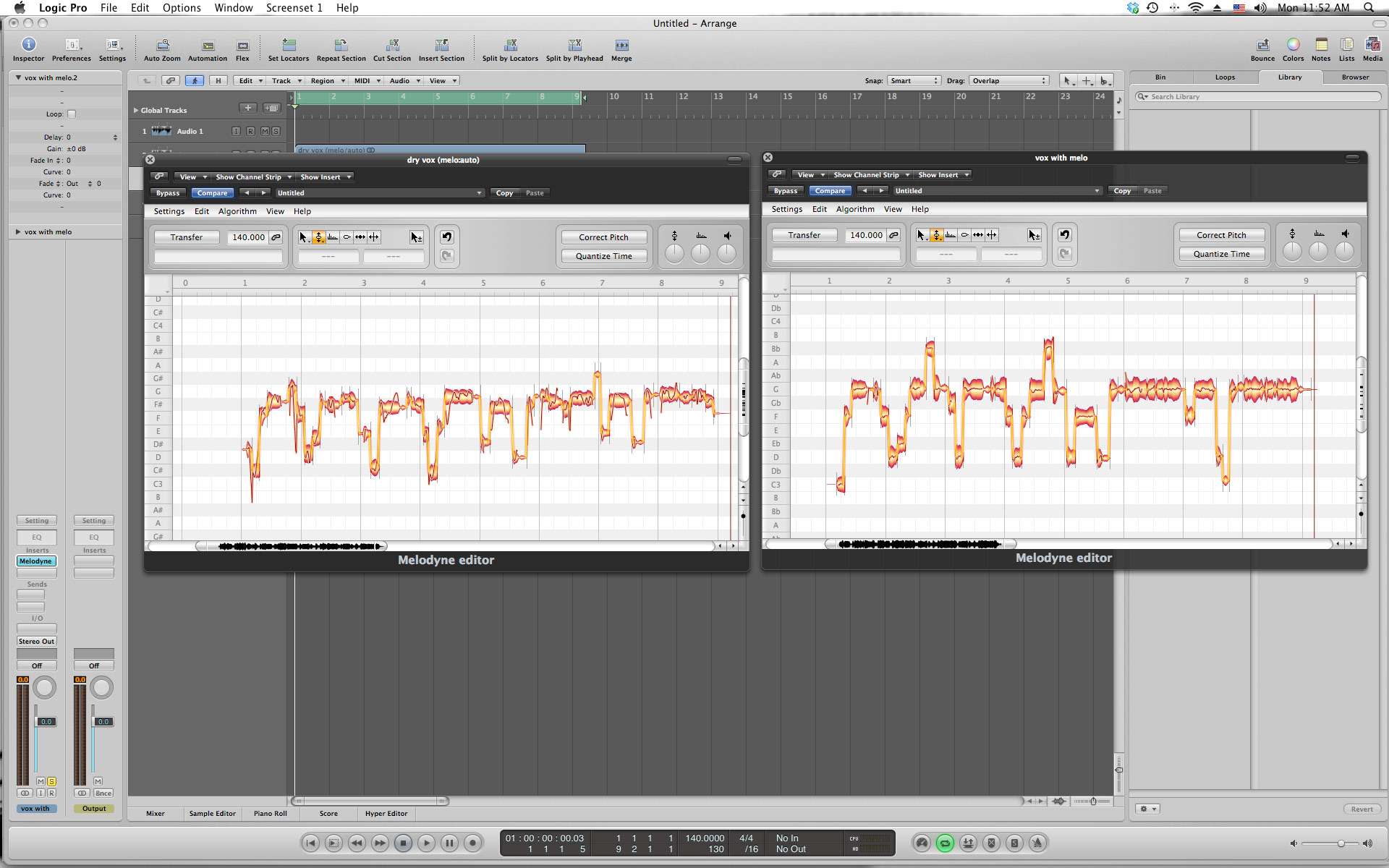
 Learn how to use Autotune. The modern music producer/engineer has an array of production tools for editing vocals. Thanks to the rapid development of technology we now have an arsenal of vocal pitch correction software available at a reasonable price. Most of this software ranges from $100 to $400.
Learn how to use Autotune. The modern music producer/engineer has an array of production tools for editing vocals. Thanks to the rapid development of technology we now have an arsenal of vocal pitch correction software available at a reasonable price. Most of this software ranges from $100 to $400.
There are lots of pitch correction apps out there but my ‘go-to’ is Melodyne and Autotune by Antares.
Important note:
To get the most out of this information you should have some basic understanding and familiarity of these plug-ins. This is not an article on how to use Melodyne or AutoTune individually, but rather how to use them together to create the ultimate pitch correction combo.
In terms of detailed editing and pitch manipulation with the least amount of noise artifacts, Melodyne is undoubtedly the best I’ve worked with. You can correct notes that are off-pitch. You can change the lengths of notes. You can fix any unnecessary pitch drift by your vocalist, alter melodies, create harmonies, and the list goes on.
AutoTune

Made famous by TPain, Autotune, can be a great resource for pitch correction. For demonstration purposes I will be using Antares stripped down version of Autotune called AutoTune Efx. Despite its simplicity, AutoTune Efx can yield some pretty good results when used in conjunction with Melodyne.
There are problems you can run into with AutoTune that can make it sound like garbage. An example of this is if you’re dealing with a singer that can’t control the vibrato in their voice. Vibrato is a pulsating effect caused by rapid variations in pitch over a course of time. Too much irregular, uncontrolled vibrato makes AutoTune sound like a bag of smashed crabs. This is why I like to process my vocals with Melodyne before running them through AutoTune.
With Melodyne, I can control the pitch drift and tuning of the recorded information and thus I can better dictate the quality of the effect AutoTune will have on it.
Here is a screenshot of Melodyne. You will see 2 versions loaded up. One called ‘dry vox’ and another called ‘vox with melo’. Click on the image for a full size view.
Take a look at the pitch drift noted by the red line running through the bodies of the orange notes. You’ll notice that the red line running through the ‘dry vox’ is all over the place while the ‘vox with melo’ has much more of a constant and even pitch drift. This was manipulated with Melodyne. You will also see that the notes in the ‘vox with melo’ are corrected and tuned.
Take a listen and pay attention to the progression of these audio samples from start to finish.
Here is the ‘dry vox’ take which has no pitch correction used:
Audio PlayerIt doesn’t sound too hot does it?
Here is the vox with melodyne applied.
Audio PlayerAs you can hear it sounds much better, but there are a few notes that still need work. This is where AutoTune comes in. With a fairly even pitch drift and all syllables falling on an exact note in the melodic scale, AutoTune will shine and offer some clean pitch correction to the notes that still need some work. The result is a much smoother effect especially if you’re looking for a bit of that Autotune feel that’s still popular these days.
Here is the vox with Melodyne and AutoTune applied:
Audio PlayerNow the vox sounds pretty good. It needs to be cleaned up a little but we have something solid to work with.
Here is the master mix so you have an idea on how it will sit in the mix as a finished product.
Audio PlayerSounds great! Be sure to read some of my previous articles if you’re not up to speed on how to record and process vocals and how to creatively breathe life into a vocal performance. This master mix incorporates all of these techniques to produce a complete hook/chorus for this song.
Don’t be scared to experiment with pitch correction software. In this particular instance I used the strengths of Melodyne to compensate for some of the limitations and irregularities of AutoTune. Be creative and resourceful in these type of situations and you’ll accomplish great sounds with ease.
If you really liked the beat used in the example, check out the PlatinumLoops product release Epic Dubstep Samples – that’s where it came from and the sample pack is bangin’!
